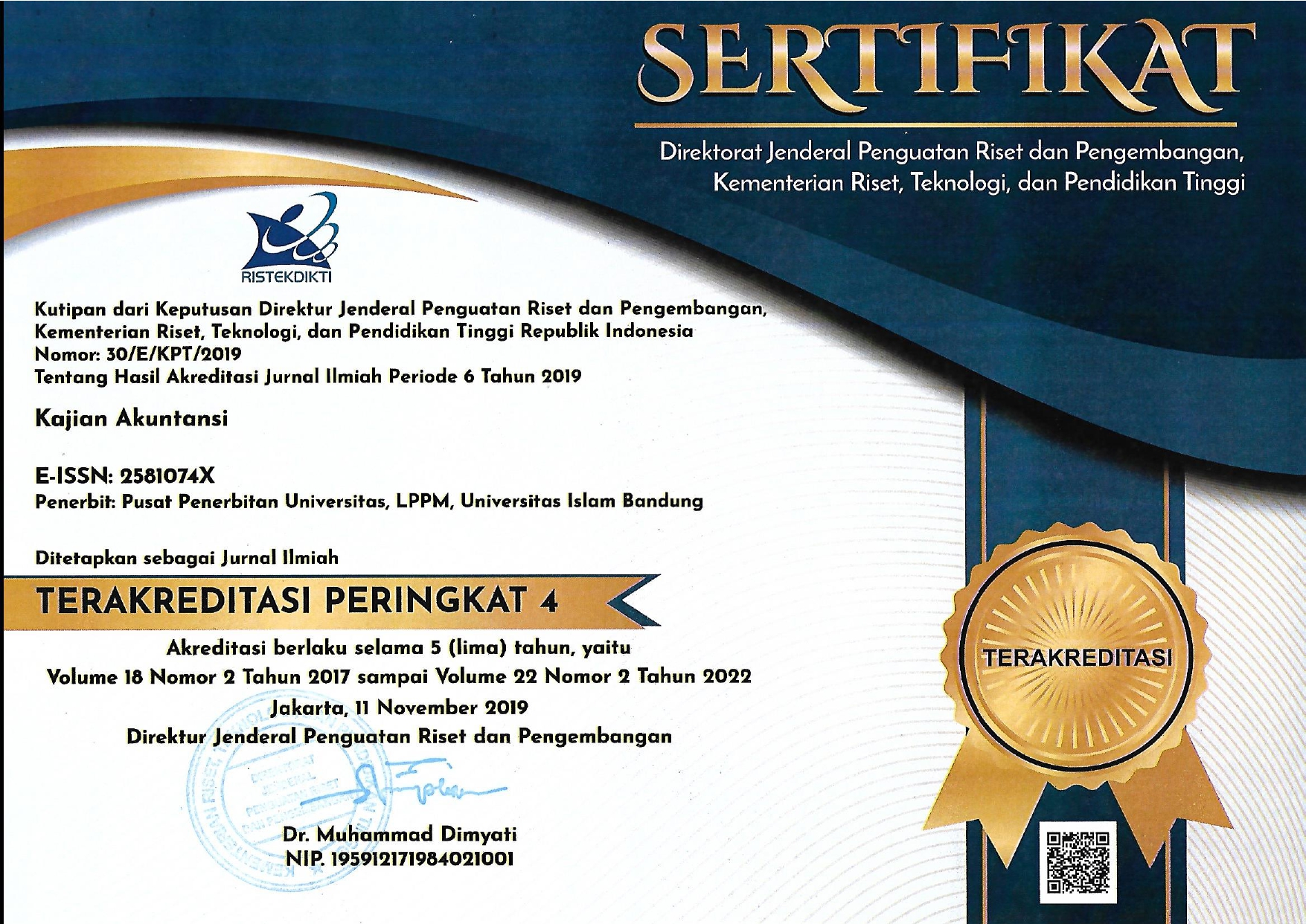Effectiveness of Internal Audit Implementation at BPJS of Employment
Abstract
Abstract
This study aims to analyze the effectiveness of implementation of internal audit in BPJS Ketenagakerjaan. This study involved 8 informants consisting of the Assistant Head of the Internal Audit Department, Internal Auditor, and the Branch Head. Measurement of the effectiveness of internal audit in this study uses the IPPF Practice Guide: Measuring Internal Audit Effectiveness and Efficiency from the Institute of Internal Auditors which consists of basic measures, services to stakeholders, technical development, innovation, and human resource development. The results showed that in a basic measure, clients (auditees) felt satisfy with the services provided by SPI. Internal auditors also feel satisfied in terms of the field of work and salary or facilities provided by management. The findings obtained by internal auditors at this time are more on administrative errors and do not lead to fraud. The recommendations by the internal auditor are always followed up by the auditee and this is also the support of management. Repeated findings are still at a reasonable level and the numbers are not many. The existence of SPI greatly helps management in achieving organizational goals. SPI allocates a budget for internal auditor technical development, but this is done in turn because of budget constraints. Internal auditors are also involved in professional organizations, but their nature is only passive. All internal auditors already have certification and auditor rotation is carried out in accordance with the needs and management policies.
Keywords: internal audit, effectiveness of internal audit, internal audit department
Full Text:
PDFDOI: https://doi.org/10.29313/ka.v23i2.8887
Refbacks
- There are currently no refbacks.
Copyright (c) 2022 Kajian Akuntansi
Indexed by:
This work is licensed under a Creative Commons Attribution-NonCommercial-ShareAlike 4.0 International License.










